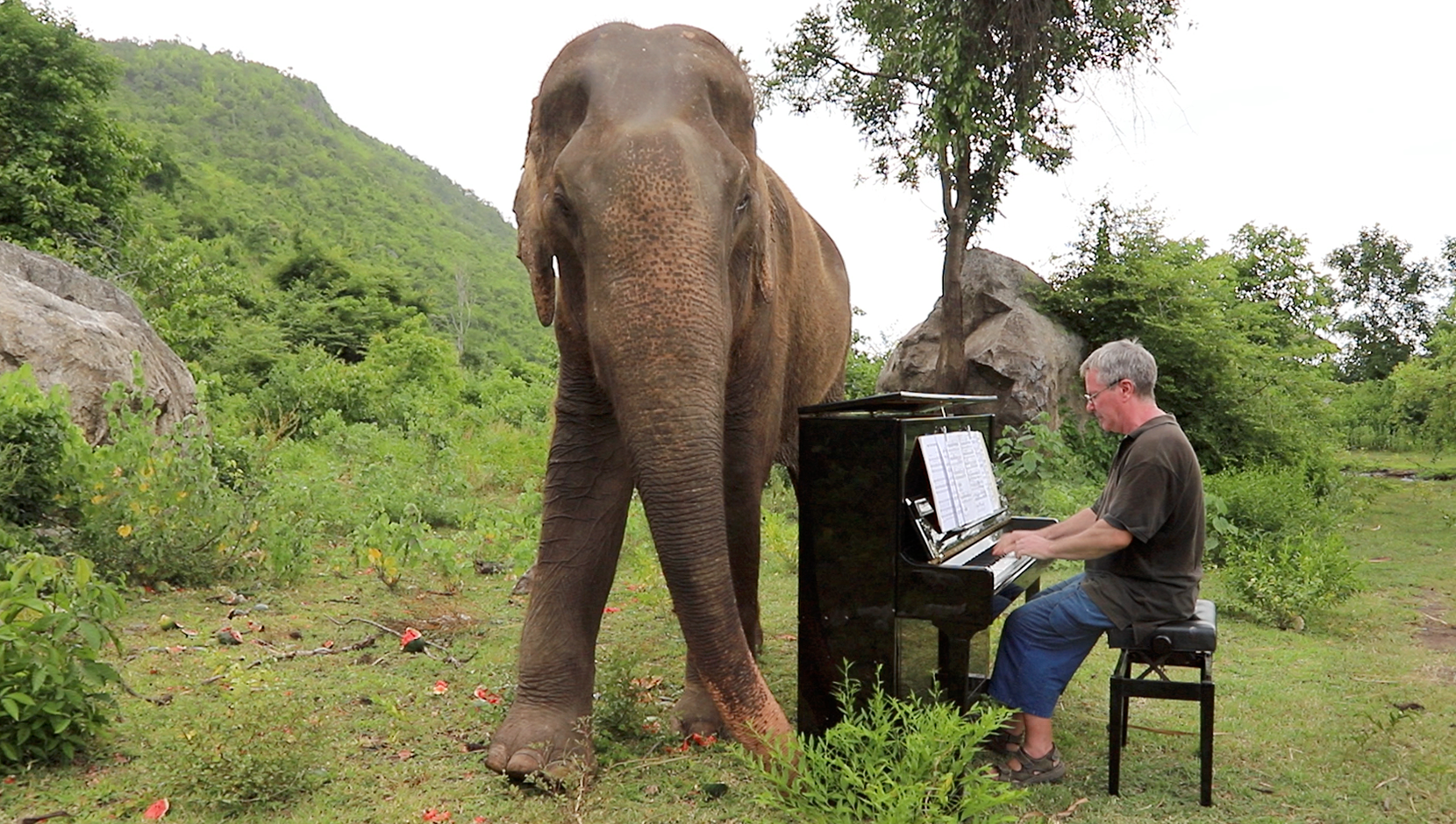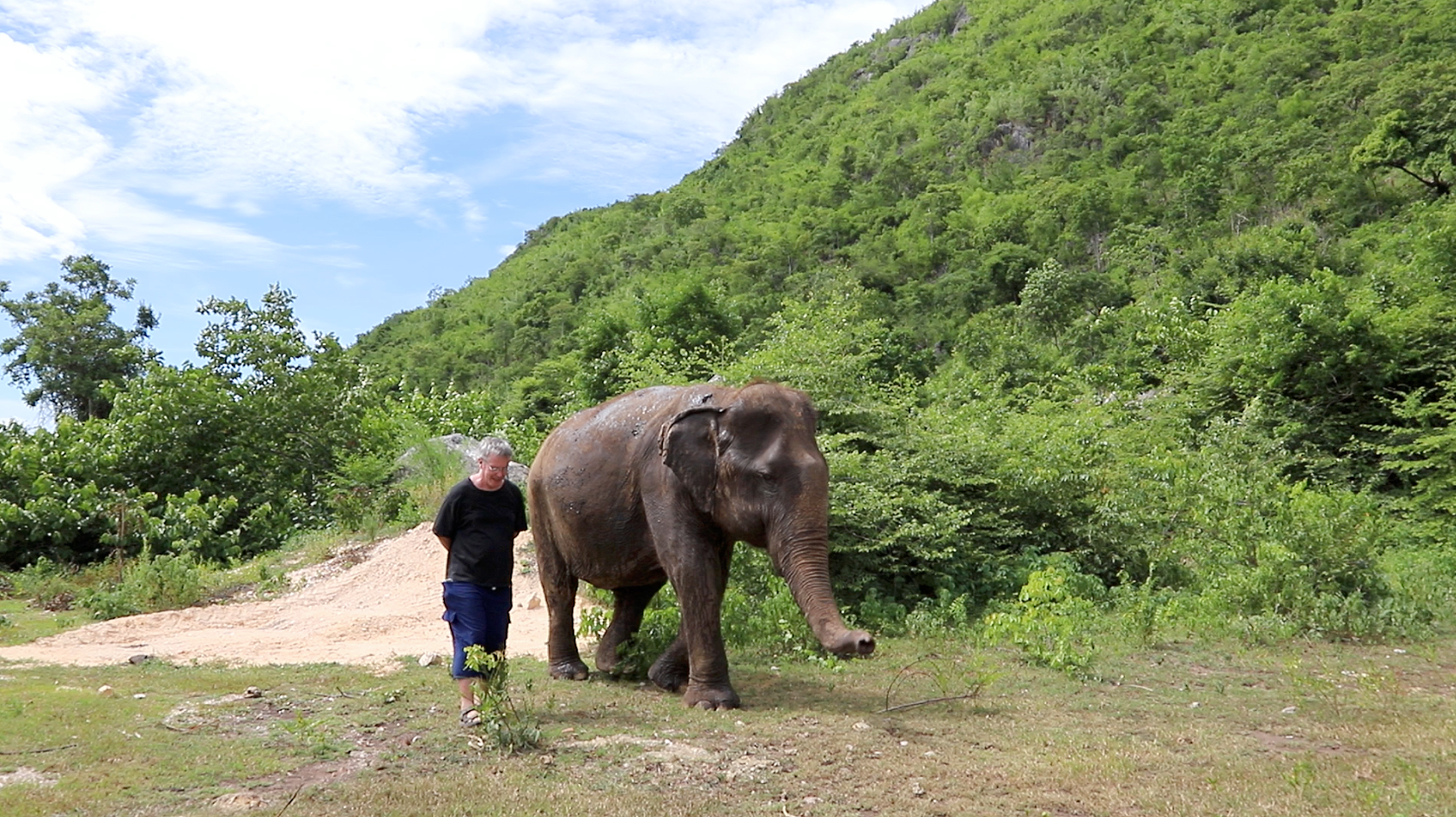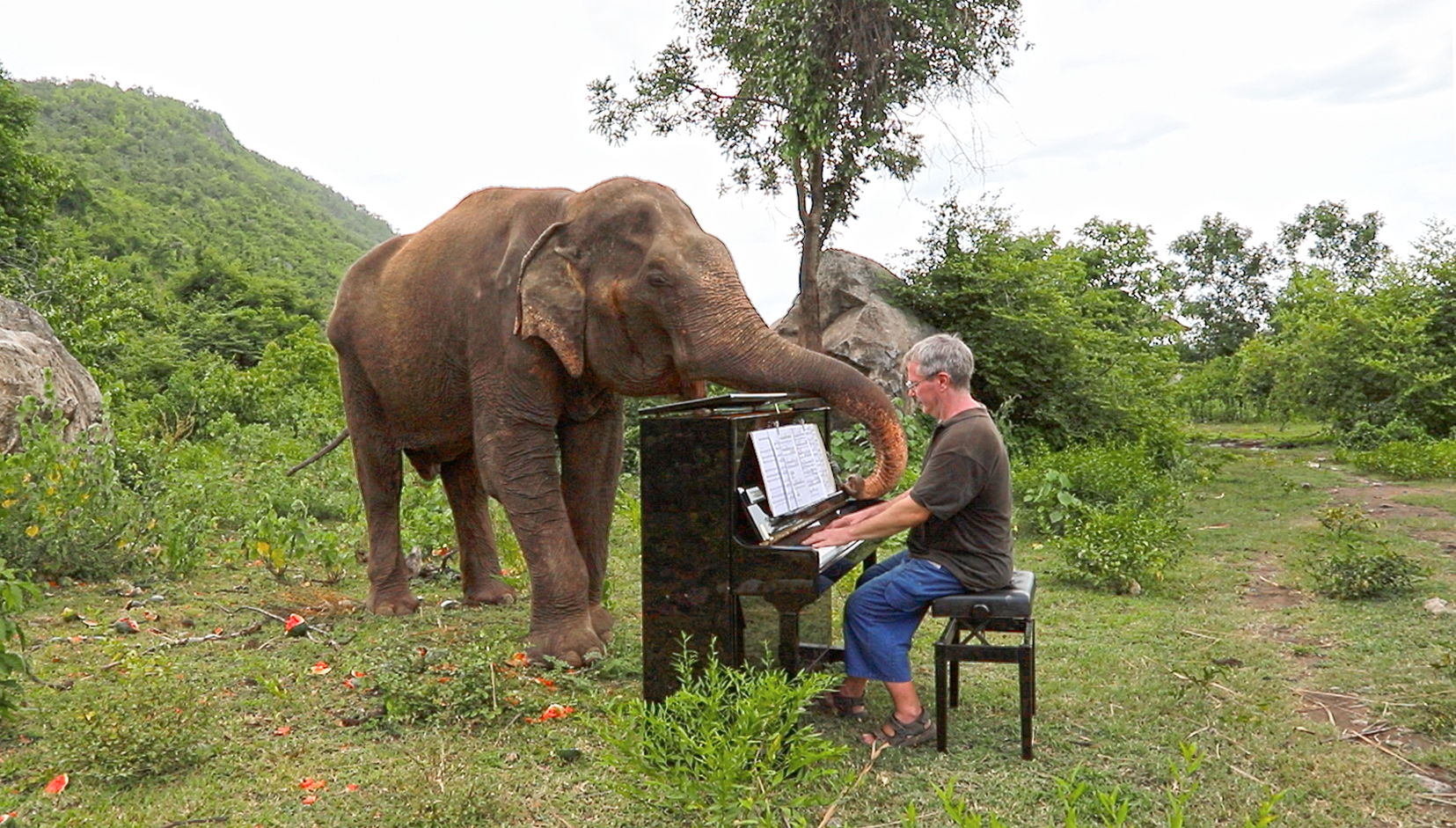Near the Thailand-Myanmar border, British musician Paul Barton recently sat down to a piano surrounded by jungle and began playing a classic Bach piece for an audience of one — a blind elephant named Lam Duan.
Barton, a 57-year-old concert pianist from Yorkshire, left the music halls of Europe behind in the 1990s. He now only plays his classical numbers for rescued elephants, with the endless green of rural Kanchanaburi province as a backdrop.
Some 160,000 subscribers follower Barton’s YouTube channel, which is filled with advanced arrangements of Schubert, Chopin, and Beethoven, but we suspect many classical music lovers are there for the footage of the Englishman serenading the majestic beasts.
Lam Duan, whose name means “cheesewood flowers” in Thai, can be seen swaying her tusk to the music, a common reaction among the pachyderms taking in Barton’s live performances.
Like many expats, Barton’s migration to Thailand was unplanned. Instead, it came as a surprise twist to what was to have been a short-term stay in Bangkok, after falling in love with his Thai wife Kwan, a wildlife artist, at what he says was first sight.
Now splitting his time between Bangkok and Kanchanaburi, Barton has spent seven years playing music to elephants at the Elephants World Sanctuary, which cares for 28 pachyderms. Many, including Lam Duan, were rescued from the logging industry.
Coconuts recently spoke with Barton about how his music, his elephant audience, and life in Thailand.
How did you start playing music for elephants in Thailand?
I was making a [YouTube] video on the River Kwai bridge in 2011 and found out about Elephants World by chance. I love elephants and liked the sound of the place being a retirement sanctuary for old, injured, handicapped logging and street elephants, so we paid them a visit.
I asked the then-manager if could bring my piano and play to the elephants, and they allowed me to do that.

Do you remember the first elephant that listened to your music? How did it react?
The first time I played piano at Elephants World, a blind elephant called Plara was closest to the piano by coincidence. He was having his breakfast of bana grass, but when he heard the music for the first time, he suddenly stopped eating with the grass protruding from his mouth and stayed motionless all through the music.
ABOVE: Barton plays a Thai flute number called “Saiyok” for Plara
Plara really liked slow classical music and each time I played piano or flute, he curled his trunk and held the tip trembling in his mouth until the music was over.
I got very close to Plara and was heartbroken when he died. His previous owner removed and sold his tusks when Plara got old, and after that a bad infection set in. Plara was often in a lot of pain, and despite the best efforts of the vets at Elephants World, he didn’t survive the infection in the holes where his tusks had been.
What’s the most common reaction elephants have to your music?
Almost all elephants react to music in a visible way. There’s a sudden movement when the music begins. The elephants are free to walk about around the piano, they are not chained or tethered in any way. If they didn’t like the music, then they could simply wander off.
Some elephants get very close to the piano of their own accord. They might drape their trunk over the piano even. Some hold their trunk in their mouth when listening, some start to sway with the rhythm of the music. Some younger elephants can get very surprised by the sound and will run suddenly around the piano, curious about it.
How does music help rehabilitate elephants that have had stressful lives? Have you noticed any changes in their behavior after they’ve gotten into your music?
For me, elephants are wild animals, plain and simple. And I wished they all lived in the wild where they belong. But I accept there are many elephants in Thailand that are domesticated or captive-held, and I understand the history to this situation. All I can think of is that we work to make the lives of domesticated elephants better in the ways we can. Elephants are emotional animals, and I am only following my instincts playing classical piano music for some of the elephants, mainly blind elephants. I am just trying and learning.
Up to now, I found slow piano music to be the most calming for the dangerous bull elephants, and perhaps gentle music brought a little interest and comfort to the blind elephants I have played for. My project is ongoing.

As a long-term expat, what do you think about the elephant tourism in Thailand?
That’s a huge question. I understand the need to generate income to look after the needs of elephants that eat so much and need a place by a river to live, but I think this should be and can be done in a considerate and caring way for elephants.
I think Elephants World is trying to find the right direction that allows visitors to have an up-close experience with elephants without actually riding them. This generates enough income to be self-sufficient without asking for donations. We are constantly trying to make improvements, learn, and try to be better. We truly do love and care for elephants.
Paul Barton is an artist, pianist, and animal advocate based in Thailand. His work can be followed on YouTube and Facebook.




